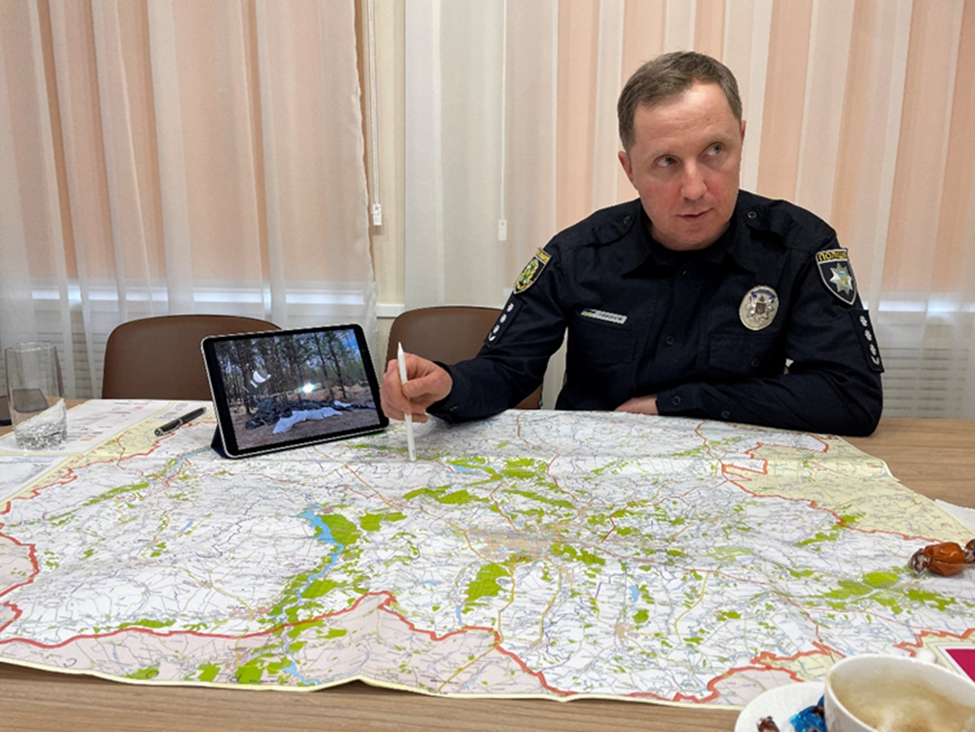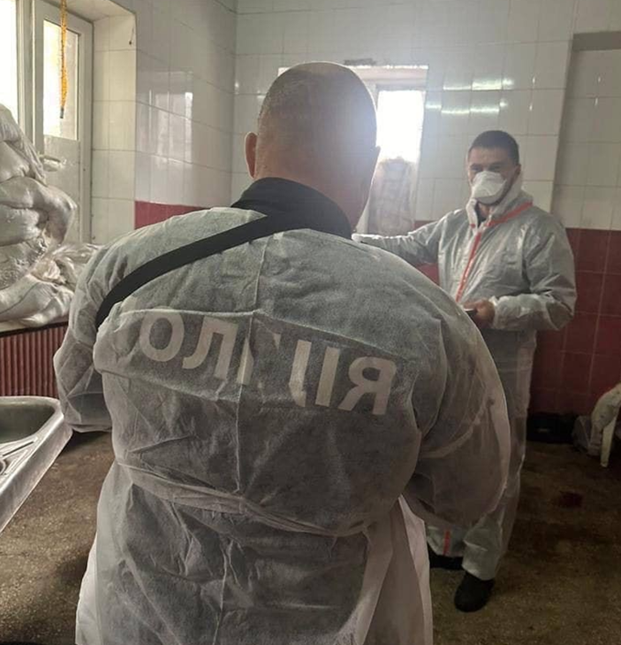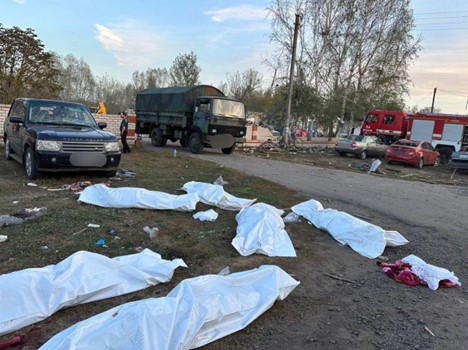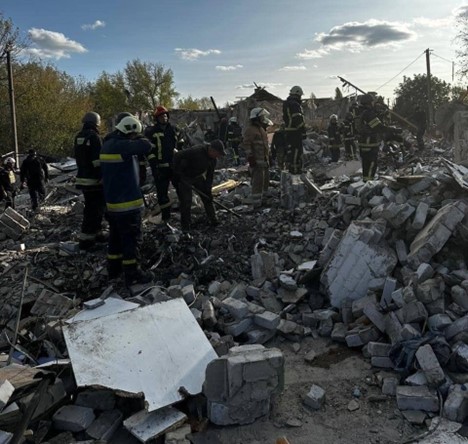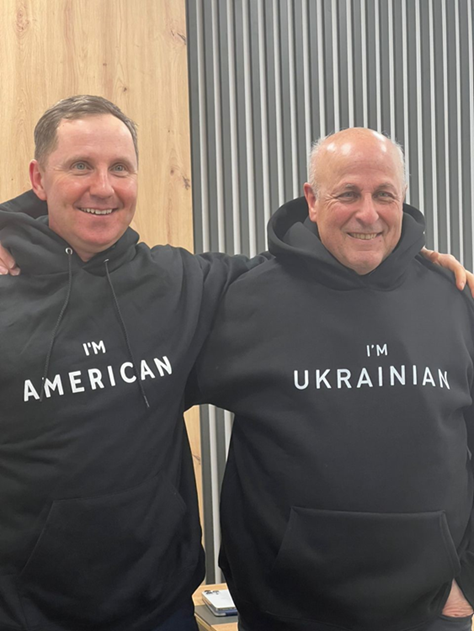|
March 9, 2024 How Ukrainian police used Rapid DNA to refute Russian claims at the UN
PERF members, Early last year colleagues and I made two trips to Ukraine, the first to Kyiv in January and the second to Kyiv and Kharkiv in April. I visited the country to better understand the challenges facing local police and help facilitate an equipment donation to the police from philanthropist and author Mitzi Perdue. While there, I saw police working to protect the population and investigate war crimes amidst regular bombardment. The danger they’re facing hit home for me in late December, when the hotel where we had stayed in Kharkiv, the Kharkiv Palace, was hit by a Russian missile. This week I followed up with Serhii Bolvinov, who serves as chief of investigations for the Kharkiv Region and met with me when I visited Kharkiv 11 months ago on my second trip to the country. Chief Bolvinov spoke about investigating war crimes, attacks on his personnel, using Rapid DNA to identify war crime victims, and countering Russian disinformation.
Chief Bolvinov last April Chuck Wexler: How are you and how is your family? Chief Serhii Bolvinov: I am fine, thanks. My family is still in Germany. It is a special day because my oldest son is 17 years old today. Wexler: So you have to say happy birthday from a distance? Chief Bolvinov: Yes, it’s hard for me. But it’s still war in our country. Wexler: How have things been since we met 11 months ago? Chief Bolvinov: Everything that can’t kill us makes us stronger. All this year we got much more experience investigating war crimes. We already have many cases which were sent to court, and we are proud of our job. Thanks to the Howard Buffett Foundation, we all have Rapid DNA labs and are using them. I have visited the Hague and organizations such as Europol and Interpol, and I can say with 100% confidence that our investigators are now the most experienced in Europe in collecting evidence and working with war crimes. Our police are still working on domestic crimes, which are still happening during the war. And Kharkiv and the Kharkiv Region are being shelled all the time by Russia. We have cities in the Kharkiv Region which are close to Russia, and they’ve been bombed by really large bombs that did a lot of damage. Wexler: Are you seeing more drone attacks and bombings? Chief Bolvinov: Things have become more complicated and the Russians are bombing us more and more. For example, in the Sumy Region two investigators were investigating a war crime Russia committed by shelling. The Russians shelled a second time and killed the investigators. In the Kharkiv Region, Russia used a drone to attack a police car, and they published the video on social media. And in another case my criminalist was working at the place of a war crime when Russia bombed it a second time. They missed by a little bit, so my criminalist stayed alive, but it was just a miracle.
Kharkiv crime technicians review evidence (Credit: Kharkiv Regional Police) Wexler: How many war crimes are you investigating now? What about other crimes? Chief Bolvinov: The amount is always changing, but at this moment, from the very start of the war, we have more than 17,000 cases of war crimes. That’s only in the Kharkiv Region. We have more than 1,500 collaborators, who are working with Russia. Crimes like stealing are lower than before, but crimes like murder are a bit higher than they were because war is erasing people’s moral lines. Of course we have a lot of people who disappeared and we don’t know where they are because of the war. And we have a lot of cases of registering military members who were killed in the war. We have to register them to get their DNA records. Wexler: How do you help your officers during these stressful and traumatic situations? Chief Bolvinov: We have psychologists working with Kharkiv police. The main Kharkiv police building was destroyed by Russian rockets, so the psychologists are working with my investigators in the same office with my war crimes department. We have already had cases where our psychologists have gone with investigators to the scene of a crime to talk to witnesses, talk to people with injuries, and help the investigators. In the small village of Hroza, the Russians killed 59 civilians with one rocket. That was almost half the village. When we were working the case, people’s bodies were so destroyed that we had to take DNA from small pieces of the bodies to identify every person who was there. We had to talk to many of the relatives of the 59 people, and also everyone who lives in the village. We brought some people to our morgue in Kharkiv to talk to us. At the morgue many people were screaming because they were shocked at what they saw.
The bodies of some of those killed in Hroza (Credit: Kharkiv Regional Police) For investigators, it’s tough to work under such conditions. They all have phone numbers of psychologists, and I know they’re calling them. But we’re still all doing our job, because that’s what we have to do because of the war in Ukraine. Wexler: Tell me more about what happened in Hroza. These were civilians, not military? Chief Bolvinov: Yes, they were civilians. After this crime happened, the Russian representative to the United Nations said that they hit military-age men. But thanks to our Rapid DNA machine, we were able to collect DNA and show everyone a list of the dead people. You can see their photos and names, and all of them were civilian. After the Russian guy was talking at the United Nations, I had a press conference and showed the media a list of all these people with photos and proved that all these people were civilians.
The aftermath of the Hroza bombing (Credit: Kharkiv Regional Police) Wexler: What should the world know about what you’re facing? Chief Bolvinov: I would like everyone to understand that Ukraine was attacked by Russia, and everyone – each policeman, each volunteer, each person – is working full time to protect this country and win this war. I am sure that we will win because we are the truth and we are the light. We do need American help, and we hope we get it, because we would like to live in a country where rockets can’t drop on your head at any moment. We would be happy if the USA would help us with weapons or anything. Ukraine doesn’t have as much for war, because we didn’t want to attack anyone. We were just living our lives.
Chief Bolvinov and I in Kharkiv last year I’m extremely grateful to Chief Bolvinov for taking the time to share his challenges with our members. We stand behind him, his investigators, and all Ukrainian police officers in solidarity as they risk their lives daily to protect their country. As Chief Bolvinov mentioned, Ukraine is counting on the continued support of the United States, and that support is currently held up in Congress. I’d like to close with a couple recommendations for additional information about the invasion. As you may have seen in Wednesday’s Daily Clips, the Wall Street Journal recently detailed the police investigation into a double homicide in Soledar as Russian forces closed in on the city. And for a harrowing look at the early days of the invasion, watch 20 Days in Mariupol, which is likely to win Best Documentary Feature at tomorrow’s Academy Awards. Best, Chuck |

